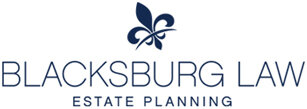Best Elder Law Lawyers in California
Share your needs with us, get contacted by law firms.
Free. Takes 2 min.
Or refine your search by selecting a city:
List of the best lawyers in California, United States
United States Elder Law Legal Questions answered by Lawyers
Browse our 2 legal questions about Elder Law in United States and read the lawyer answers, or ask your own questions for free.
- Hi, I like to get the information about my deceased sister government pension in Sind Govt.
- I am living in usa and my sister was the govt employee in pakistan about 25 to 27 years. she was unmarried and my parents also passed. I like to know who will the benifits after her death. She passed during her job. I really appreciate it if you guide... Read more →
-
Lawyer answer by A A Abdullahi Law Firm
Hello, Her next of kin will be you and so you shall be the one to receive the benefits and her properties. You can contact us vfor assistance on the documentation and procession
Read full answer - How to protect property from squatters law
- Deed in my mom's name. She died 18 years ago. Son is named as administrator but not as owner. We live in USA so let Non relative live there for 45-50 year but had no formal contract. Let him live there free as long as he paid utilities and taxes.... Read more →
-
Lawyer answer by M BILAL ADVOCATES, CORPORATE & TAX CONSULTANTS
After completing probate to establish yourself as the legal heir, you can transfer the property title to your name and then grant them permission to reside there through a formal agreement. It is worthy to note that you can do...
Read full answer
About Elder Law in California, United States
Elder Law in California refers to a specialized area of legal practice focused on the unique needs and challenges faced by older adults and their families. It covers a wide range of issues, including estate planning, long-term care, Medicare and Medi-Cal, guardianship, elder abuse, and matters related to capacity and decision-making. Attorneys who practice Elder Law help clients navigate the complexities of aging, ensuring that their legal rights and well-being are protected throughout their later years.
Why You May Need a Lawyer
There are several situations where seeking legal help in Elder Law may be necessary in California. Common scenarios include:
- Planning for long-term care or assisted living arrangements
- Applying for Medi-Cal or other public benefits
- Drafting or updating wills, trusts, and powers of attorney
- Protecting assets from the costs of nursing home care
- Addressing concerns about elder abuse, neglect, or financial exploitation
- Handling disputes over guardianship or conservatorship
- Managing incapacity or decision-making for a loved one
A lawyer can provide guidance, help avoid costly mistakes, and ensure that legal documents meet California's specific requirements.
Local Laws Overview
California has laws uniquely tailored to the needs of seniors and their families. The state has comprehensive rules governing Medi-Cal planning, spousal rights, and the protection of seniors from abuse. Here are some key aspects:
- Medi-Cal Planning: California offers various exemptions for asset transfer and spend-down rules, which can impact eligibility for long-term care assistance.
- Advance Health Care Directives: California recognizes advance directives that allow individuals to appoint agents to make medical decisions if they cannot do so themselves.
- Conservatorships: Courts can appoint conservators to manage the affairs of those unable to make decisions due to incapacity. The process is regulated under the California Probate Code.
- Elder Abuse Protections: The state enforces the Elder Abuse and Dependent Adult Civil Protection Act, offering civil and criminal remedies against those who exploit or harm seniors.
- Estate Planning: California's probate laws and community property rules can affect how assets are distributed after death, requiring careful planning.
Understanding these local laws is vital to making informed legal decisions for yourself or your loved ones.
Frequently Asked Questions
What is Elder Law?
Elder Law is a legal field addressing the rights, needs, and legal issues of aging adults. It covers estate planning, nursing home care, public benefits, and elder abuse.
How does Medi-Cal affect long-term care in California?
Medi-Cal can help pay for nursing home care, but eligibility is based on income and assets. Proper planning can protect assets while qualifying for assistance.
What is a conservatorship and when is it necessary?
A conservatorship is a court process that appoints a person to manage the personal and financial affairs of someone found incapable of doing so themselves, typically due to illness or disability.
How can I protect my elderly loved one from financial abuse?
Monitor finances for unusual activity, establish a power of attorney with a trusted individual, and report suspicions to Adult Protective Services or local authorities.
Are there specific laws against elder abuse in California?
Yes, California has strict laws under the Elder Abuse and Dependent Adult Civil Protection Act that make elder abuse, neglect, and exploitation criminal offenses with serious penalties.
What legal documents are important for California seniors?
Key documents include a will, a living trust, a durable power of attorney for finances, and an advance health care directive.
Can a senior with diminished capacity still create legal documents?
A person must have sufficient mental capacity to understand the documents they are signing. If capacity is in doubt, it may require a medical or legal assessment.
How does community property law affect estate planning in California?
California is a community property state, meaning spouses generally share equal ownership of assets acquired during marriage, influencing how estates are divided and managed.
What should I do if I suspect nursing home neglect?
Document concerns, report them to the facility administration, and contact the California Department of Public Health or Adult Protective Services for investigation and support.
How do I find a reputable Elder Law attorney in California?
You can contact your local bar association’s lawyer referral service, consult with the National Academy of Elder Law Attorneys, or ask for recommendations from trusted professionals.
Additional Resources
For further information and assistance regarding Elder Law in California, consider these organizations and resources:
- California Department of Aging
- California Advocates for Nursing Home Reform (CANHR)
- California State Bar - Public Legal Information
- Adult Protective Services (APS)
- California Department of Public Health
- Local Area Agencies on Aging
- National Academy of Elder Law Attorneys (NAELA)
Many of these organizations offer free or low-cost support and educational materials tailored to seniors and their caregivers.
Next Steps
If you or your loved one needs legal help in the area of Elder Law in California, start by gathering your financial records, legal documents, and any correspondence related to your concerns. Identify the specific issues you are facing, such as benefit eligibility, abuse, or incapacity planning.
Contact a qualified Elder Law attorney who is familiar with California’s specific laws and requirements. Schedule a consultation to discuss your needs and receive tailored advice. If you are unsure where to start, reach out to reputable organizations or your local Area Agency on Aging for further direction and potential referrals.
Taking early action can preserve rights, maximize benefits, and ensure the best possible outcomes for California’s elderly residents and their families.
Lawzana helps you find the best lawyers and law firms in California through a curated and pre-screened list of qualified legal professionals. Our platform offers rankings and detailed profiles of attorneys and law firms, allowing you to compare based on practice areas, including Elder Law, experience, and client feedback.
Each profile includes a description of the firm's areas of practice, client reviews, team members and partners, year of establishment, spoken languages, office locations, contact information, social media presence, and any published articles or resources. Most firms on our platform speak English and are experienced in both local and international legal matters.
Get a quote from top-rated law firms in California, United States — quickly, securely, and without unnecessary hassle.
Disclaimer:
The information provided on this page is for general informational purposes only and does not constitute legal advice. While we strive to ensure the accuracy and relevance of the content, legal information may change over time, and interpretations of the law can vary. You should always consult with a qualified legal professional for advice specific to your situation.
We disclaim all liability for actions taken or not taken based on the content of this page. If you believe any information is incorrect or outdated, please contact us, and we will review and update it where appropriate.
Browse elder law law firms by city in California
Refine your search by selecting a city.
















